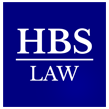On 30 June 2023, participants in the banking and financial services sector and the lawyers that advise them will lose a dear friend, the London Inter-Bank Offered Rate (LIBOR). LIBOR is essentially a benchmark interest rate set by a panel of banks in London on a (relatively) daily basis, and represents the interest rate at which such banks could obtain loans from other banks in various currencies and for various durations. LIBOR has been the most commonly used benchmark rate used in floating rate loans, floating rate notes, OTC derivatives and other forms of financial instruments for several decades. So why must we say goodbye to it and what happens next? Before addressing those issues, let’s consider what LIBOR is in a little more detail.
On 25 January 2023, the Ministry of Justice and the Ministry of Commerce issued an Inter-Ministerial Proclamation No. 041 (the “Prakas”) setting out the procedure for imposing fines in case of violation of the Law on Competition (“Competition Law”). The Competition Law, promulgated in 2021, stipulates certain prohibitions on entering and implementing a vertical agreement, abuse of dominant market position, and business combination. The violation of any of these prohibitions would be subject to a fine of 3% up to 10% of the violator’s turnovers received during the violation period but not exceeding three years. In case of continued violation after receiving written warning and fines, their business license, permit or approval could also be revoked.
On 24 February 2023, the Financial Action Task Force (FATF) announced that Cambodia has been removed from its List of Jurisdictions under Increased Monitoring (“Grey List”). This is incredibly welcome news and is well justified given the great strides that the Royal Government of Cambodia (RGC) has made in developing, implementing and enforcing robust anti-money laundering and combatting the financing of terrorism laws.
Further to our previous publication in April 2022 on Notification No. 0837 on the Requirement on Use of the National Domain Name “.com.kh” and the National Domain Name Electronic Address when Filing an Annual Declaration of the Commercial Enterprises, on 31 January 2023 the Ministry of Posts and Telecommunications of Cambodia (the “MPTC”) issued Notification No. 178 on the Use of the Registration of Domain Name (.kh) via Automated System (the “Notification”) to make the application process smoother and more efficient.
An important feature of the regulatory landscape for banks in Cambodia is the requirement that they hold a certain amount of assets in reserve with the National Bank of Cambodia (the “NBC”). Similar requirements exist in a large number of other jurisdictions and serve a dual purpose, being:
INSIGHTS
In August 2015 HBS Law revealed its new website. The rebrand is designed to reflect HBS Law's position as a leading Cambodian law firm with an Asian regional reach.
"We are increasingly working with clients who have a presence throughout the region, as well as with foreign investors coming into Cambodia," says Mr Ly, Managing Director of HBS Law. "We are proud to offer honest, balanced services to our clients, acting as trusted business partners to help them succeed."

